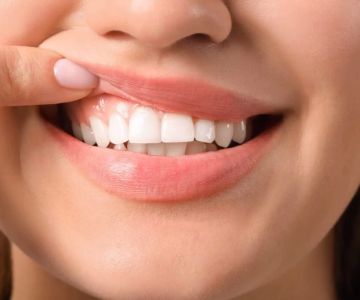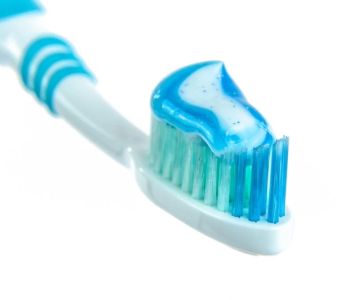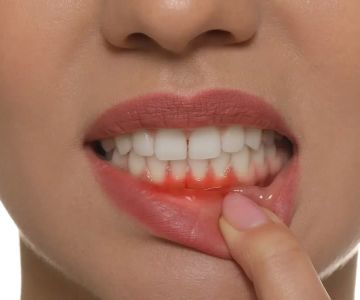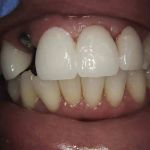Can Gum Problems Be Treated with Home Care?
Gum problems are a common oral health issue affecting millions across the United States. These issues range from mild inflammation to severe periodontitis, leading many to wonder if at-home treatments can effectively manage these conditions. In this article, we explore whether gum problems can be treated with home care, the role of professional intervention, and practical steps you can take to maintain gum health.
The Basics of Gum Health
Maintaining gum health starts with understanding the basics of oral hygiene. The American Dental Association (ADA) emphasizes brushing at least twice a day and flossing daily. These simple practices are the first line of defense against plaque buildup, which can lead to gum inflammation, gingivitis, and eventually, more severe diseases like periodontitis. By establishing a solid foundation of oral hygiene, individuals can significantly reduce the risk of gum problems.
Common Home Remedies for Gum Problems
Many turn to home remedies as a first response to gum problems. Saltwater rinses are often recommended for their antibacterial properties, helping reduce inflammation and promoting healing. Additionally, certain herbal remedies, such as sage or chamomile tea, have been noted for their anti-inflammatory effects. While these methods can provide temporary relief, it's crucial to remember that they do not replace professional dental care but rather supplement it.
Understanding the Limits of Home Care
It's essential to acknowledge the limitations of treating gum problems solely with home care. While homemade solutions might alleviate minor symptoms, they cannot address underlying causes such as tartar deposits or periodontal pockets. Professional dental cleanings are key to removing tartar that cannot be eliminated by routine brushing and flossing. Ignoring these professional interventions can lead to irreversible damage, underscoring the importance of regular dental visits.
Situations Requiring Immediate Professional Attention
There are instances where gum problems demand immediate professional intervention. Symptoms such as persistent bleeding, severe pain, or receding gums indicate advanced disease stages that home remedies cannot fix. The Centers for Disease Control and Prevention (CDC) highlights that untreated gum disease is linked to systemic conditions like heart disease and diabetes, which is why seeking timely dental consultation is vital.
Building a Long-Term Gum Care Plan
Developing a long-term care plan involves both home care and professional guidance. This plan should include regular dental check-ups, professional cleanings, and a consistent oral hygiene routine. The Dentistry Toothtruth website provides resources and information on maintaining optimal gum health, making it a valuable tool for those seeking to improve their oral care regimen.
Conclusion: Balancing Home Care and Professional Treatment
While home care is an integral component of maintaining gum health, it cannot replace the expertise and treatment provided by dental professionals. A balanced approach combining diligent home practices with regular professional check-ups offers the best defense against gum problems. By adopting this comprehensive strategy, individuals can safeguard their oral health effectively. Visit Dentistry Toothtruth for more information and resources related to maintaining gum health.







 Great Expressions Dental Centers - Peachtree City4.0 (406 review)
Great Expressions Dental Centers - Peachtree City4.0 (406 review) The Dentists, LLC5.0 (180 review)
The Dentists, LLC5.0 (180 review) iDental3.0 (3 review)
iDental3.0 (3 review) Ivy Dental of Fleetwood4.0 (9 review)
Ivy Dental of Fleetwood4.0 (9 review) Smile Dental of New Rochelle5.0 (242 review)
Smile Dental of New Rochelle5.0 (242 review) Dental Town-Pulaski0.0 (0 review)
Dental Town-Pulaski0.0 (0 review) The Importance of Oral Health Education During Pregnancy for a Healthy Pregnancy
The Importance of Oral Health Education During Pregnancy for a Healthy Pregnancy Best Tips for Brushing Your Teeth Properly for Healthy Gums: Essential Techniques for Oral Health
Best Tips for Brushing Your Teeth Properly for Healthy Gums: Essential Techniques for Oral Health Why Skipping Dental Checkups Can Lead to Bigger Oral Health Problems
Why Skipping Dental Checkups Can Lead to Bigger Oral Health Problems Advantages of Porcelain Dental Restorations
Advantages of Porcelain Dental Restorations How Can Diabetes Cause Tooth and Gum Problems? Preventing and Managing Oral Health Issues
How Can Diabetes Cause Tooth and Gum Problems? Preventing and Managing Oral Health Issues Healthy Habits for Promoting Good Oral Health and Hygiene: Tips for a Healthy Smile
Healthy Habits for Promoting Good Oral Health and Hygiene: Tips for a Healthy Smile